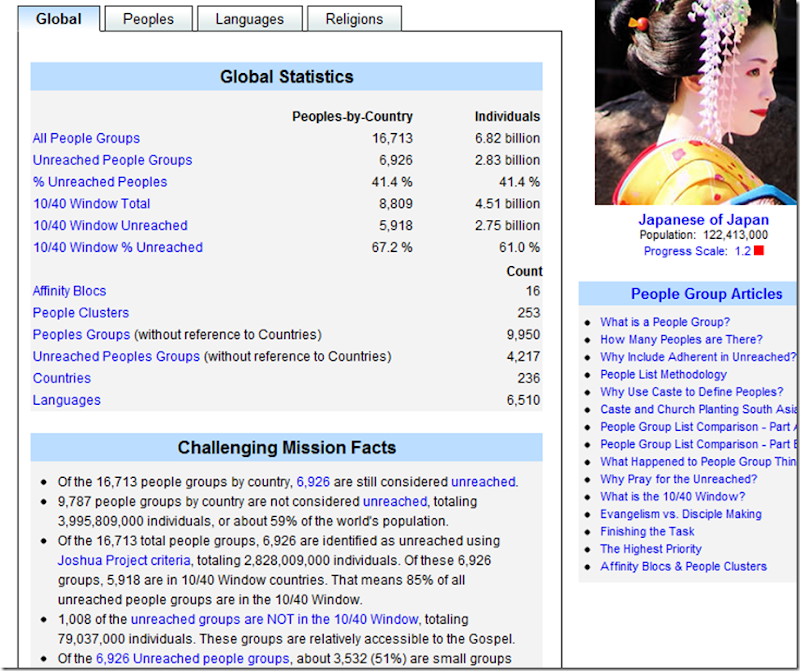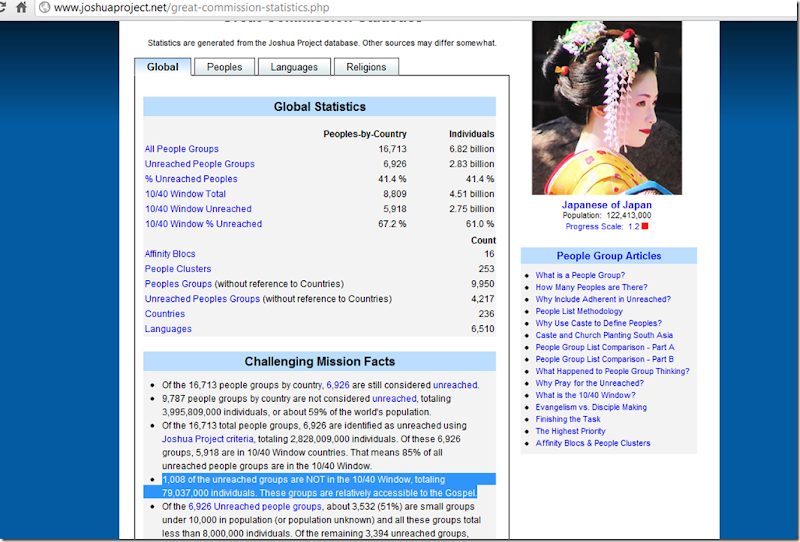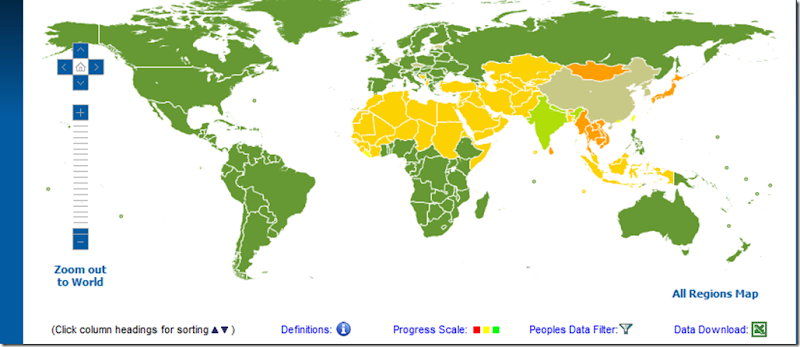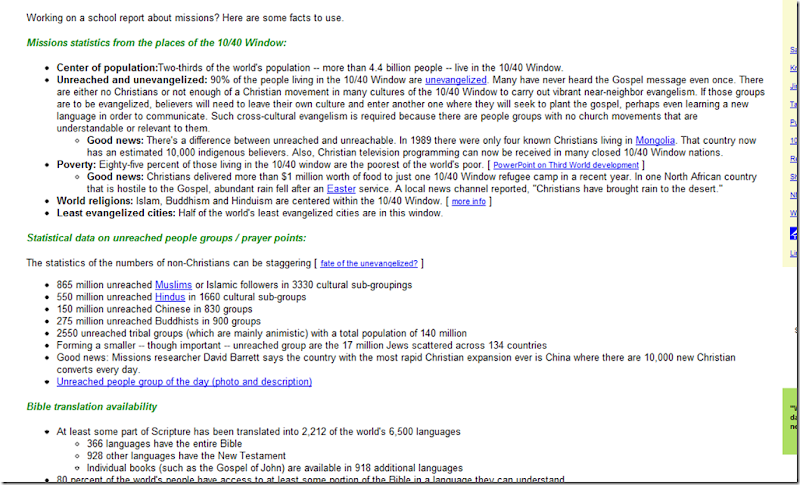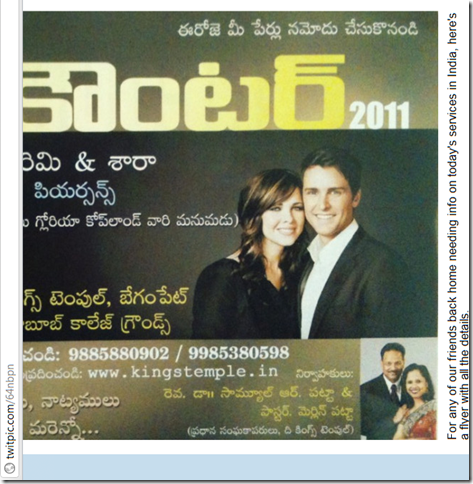http://axisoflogic.com/artman/publish/Article_100.shtml
No Hindu on this List ? ..A website writing on Hindus and Indian issues
BIOGRAPHICAL
EDITORS
Les Blough
Les Blough is founding editor of Axis of Logic, a website launched on May 18, 2003. He grew up spending his time in nature and working on a Mennonite dairy farm in Pennsylvania from 8 years of age. He graduated from The Institute of Christian Service at Bob Jones University (BJU) in 1965 and was ordained as an Independent Baptist minister the same year. He served as pastor of The Park Hill Chapel in Johnstown, Pennsylvania for over 6 years. During that time he began reading the works of Form Criticism, authored by German theologians (prohibited reading at BJU). He also began to consider the grievances of his peers who were protesting the war in Viet Nam. He buried a young member of his church, killed in Vietnam, remembering the words the young man's father spoke to him at the graveside: "Isn't this some way to get your boy back". These incidents and a photograph were the catalysts for his change from a Fundamentalist Christian background. After leaving Christianity as an organized, civil-religion, his world-view became greatly influenced by the teachings of Tao and Siddhartha Gautama (Buddha). He meets with friends on a regular basis who support one another in their cultivation of Tao.
He began to oppose the war in Vietnam and left the ministry and Christian Fundamentalism in 1967. He views his renunciation of the ideology of Christian fundamentalism as "part of the journey". He resigned from his pastorate in 1972 and the committee that ordained him withdrew his ordination. Later, he graduated from University of Tennessee and Penn State University with degrees in counseling psychology. While attending college and graduate school, he worked at the Tennessee State Prison in Nashville and Rockview State Penitentiary, Belfonte, PA for 8 years to support his family and continuing education. After working as director of a research department and addictions clinic in a teaching hospital in Pennsylvania, he moved to Boston, MA. In Boston, he worked as a psychotherapist and in forensics in his own practice for many years. He has written poetry since he was 12 years old and political essays for many years. He has closed his business, Rehabilitation Management Consultants in Boston, MA to devote himself full time as an activist for social and political change and as a writer, editor and publisher on Axis of Logic. In 2007, he moved with his family to the Bolivarian Republic of Venezuela.
After 2003, he visited Venezuela on 5 different occasions to learn more about the Bolivarian Revolution. He currently lives with his family in Venezuela. His favorite times for renewal are reading, reflection, writing essays and poetry and spending time in Venezuela's mountains and Caribbean shores, spending time with his family and visiting with the people of Venezuela. You can reach Les Blough via e-mail at:les@axisoflogic.com
Paul Richard Harris
Paul Harris' skilled writing and powerful analyses of international affairs are widely read around the world. He is self-employed as a consultant, providing businesses with the tools and expertise to reintegrate their sick or injured employees into the workplace. He has traveled extensively in what is usually known as "the Third World" and has an abiding interest in history, social justice, morality and, well, just about everything. Paul covers central African current events for News From The Front (nftf.org) where his articles are frequently republished on the United Nations website (monuc.org). His is former editor of YellowTimes.org and his work can be found at vivelecanada.ca, where he is a member of the Advisory Board on Canadian Sovereignty. Paul lives in rural Canada surrounded by corn, cows, and turnips. He can be reached via e-mail at:paul@axisoflogic.com
COLUMNISTS
On behalf of all Axis of Logic Readers, we wish to thank each of the columnists at Axis of Logic who generously give their wisdom, time and skills to examine, analyze, investigate, probe, provoke, stimulate, inform and educate an international public. They give all of this to Axis of Logic readers, receiving no financial remuneration for their work. Some columnists also research, select and post articles directly to the Ezine. Columnists reside in 6 different countries and 6 different states in the United States, offering insight, analyses and skilled-writing from international, interstate, intercultural and interdisciplinary vantage points. Our columnists are presented below in alphabetical order.
Dady Chery grew up in Port-au-Prince, Haiti in a typically extended family headed by a great-aunt, the Auntie noted here, who adopted two of her godchildren plus all the children of a deceased sister, including Dady's mother. Dady arrived in the U.S. in the early 70's at age fourteen. She can be contacted via mail to the editors of Axis of Logic.
Cathy Garger is a freelance writer, organizer, and speaker who works to stop the continued obscene, eternal radiation poisoning of the planet. Living in the shadow of the national District of Crime, Cathy is constantly nauseated by the stench emanating from the nation’s capital during the Washington, DC, federal work week. Contact the Author
Ghali Hassan (Ph.D.) is a research scholar, specialising in the areas of science education and educational psychology. His interest in world affairs is the result of careful observation of U.S.-Western policies of naked aggression, double standards, classic hypocrisy and their detrimental impacts on the lives of millions ordinary people around the world. Fluent in several languages, Ghali’s articles have appeared on the Internet, in newspapers and periodicals around the world, including Australia and New Zealand. He lives in British Columbia, Canada. Contact the Author
Mankh
Mankh's birth name is Walter E. Harris III. He is a poet and essayist living in New York. Since becoming a columnist on Axis of Logic, we have also adopted him as our resident poet. He is the author of Singing an Epic of Peace and he is author/editor of Haiku One Breaths. Mankh also edited an anthology of essays and poems entitled MODERN MUSES: How Artists Become Inspired. In addition to his work as a writer, he is a small press publisher and Turtle Islander. You can contact him via his literary website. Contact the Author.
Siv O'Neall
Siv O'Neall was born and raised in Sweden where she graduated from Lund University. She has lived in Paris, France and New Rochelle, N.Y and traveled extensively throughout Europe. Siv retired after many years of teaching French in Westchester, N.Y. and English in the Grandes Ecoles (Institutes of Technology) in France. In addition to her own writing, Siv has also provided Axis of Logic with translation services. She has been living in France for 35 years, first in Paris and now Lyon. In addition to her political activism and writing, her life is filled with friends, family, music, animals, reading, traveling, and "anything that pleases the eye or the palate". Contact the Author
James Petras
James Petras is a Bartle Professor (Emeritus) of Sociology at Binghamton University, New York. He is the author of 62 books published in 29 languages, and over 560 articles in professional journals, including the American Sociological Review, British Journal of Sociology, Social Research, and Journal of Peasant Studies. He has published over 2000 articles in nonprofessional journals such as the New York Times, the Guardian, the Nation, Christian Science Monitor, Foreign Policy, New Left Review, Partisan Review, TempsModerne, Le Monde Diplomatique, and his commentary is widely carried on the internet. His publishers have included Random House, John Wiley, Westview, Routledge, Macmillan, Verso, Zed Books and Pluto Books. He is winner of the Career of Distinguished Service Award from the American Sociological Association's Marxist Sociology Section, the Robert Kenny Award for Best Book, 2002, and the Best Dissertation, Western Political Science Association in 1968. His most recent titles include Unmasking Globalization: Imperialism of the Twenty-First Century (2001); co-author The Dynamics of Social Change in Latin America (2000), System in Crisis (2003), co-author Social Movements and State Power (2003), co-author Empire With Imperialism (2005), co-author)Multinationals on Trial (2006).
He has a long history of commitment to social justice, working in particular with the Brazilian Landless Workers Movement for 11 years. In 1973-76 he was a member of the Bertrand Russell Tribunal on Repression in Latin America. He writes a monthly column for the Mexican newspaper, Le Jornada, and previously, for the Spanish daily, El Mundo. He received his B.A. from Boston University and Ph.D. from the University of California at Berkeley. Contact the Author
Arturo Rosales
Arturo Rosales is a seasoned journalist who has worked in several Latin American countries. Since 1999 he has been writing on a volunatary basis to disseminate the truth about environmental and energy issues which are often obfuscated in the corporate media. With the advent of the Bolivarian revolution he turned his hand to more politically angled writing, especially when analyzing the effects and strategy of the Global Corporate Empire on the third world and Latin America in particular. Currently, Arturo is a staff writer for Axis of Logic." Contact the Author
Britta Slopianka
Britta Slopianka is a native of Germany where she had her own business and also worked as an activist for the abolition of the death penalty and for those on the death rows of the U.S. and in other countries. Since then, she moved to the United States where she continues her work for abolition. She visits people condemned to death on death row, researches news and commentary, tracks the legal status of those condemned and tirelessly works on their behalf. She started our section on the Death Penalty and posts reports on a daily basis. She is Florida Coordinator for The The Innocent in Prison Project and former Chairwoman of The The German Coalition to Abolish the Death Penalty. Contact the Author
IN MEMORIUM
Shahid R. Siddiqi (1942-2011)
"The one dies into the many ... and the many die into the one."
When someone we love dies, it is difficult to speak of them in the past tense because they still remain with us. So it is with Shahid R. Siddiqi who crossed over on February 22, 2011. Shahid was our teacher, sometimes our student, always our loyal friend and confidant, our fellow traveler, sharing the path on this brief pilgrimage. He will continue to be all of these things for us.
Our work together
As a teacher, it was his gentle spirit that allowed him to patiently and carefully use facts and analysis to unravel complicated issues about Pakistan and the surrounding region. He calmly explained things, never ranting or resorting to ad hominem remarks to explain or emphasize his views.
As a good soldier, Shahid fought skillfully and bravely against our common enemies, sometimes leading the way, sometimes at our side, never faltering or falling behind, unless it was to take our back. The weapons he accumulated were his native intelligence, his ability to make things clear with words alone, his gentleness and his honesty.
In our writer-editor relationship one of us often paused to ask the other about how we could better clarify our thoughts through our words. Writing skillfully is one thing, knowing what is important and relevant to write at any given time is another. Shahid always concurred with our view of the latter and the Axis of Logic mission.
The last article Shahid wrote just a few days before his death was among his best. Two days earlier, I wrote to him and asked him if he’d be interested in writing something about Raymond Davis, the CIA agent who murdered two Pakistani men. It turned out he was a step ahead of me and had already completed his article.
He was quite aware of the country's failings and the dangers it faces, but he was equally able to identify what is positive. Most important, his incisive mind was able to tear through the rhetoric to reach the issues clearly. He understood the dangers inherent in Pakistan's relations with its neighbours, as well as the crucial geographic setting that makes the country attractive to outside forces. But he never lost sight of what his country did right and wrong, and which outside players created potential threats.
At this critical time in history, his was and continues to be a voice that the world needs to hear.
Shahid’s articles always received a vigorous response from our readers. Many were grateful, thanking him and us for new information, encouragement and hope. He also had his share of enemies who sometimes wrote angry, hateful comments. Shahid always replied, but always gently and never in kind.
Shahid’s Professional Life
Shahid R. Siddiqi began his career in the Pakistan Air Force, and later joined the private sector where he worked in senior management positions in Pakistan, United States, Saudi Arabia, and South Africa. He held two Masters degrees in Chemistry and English Literature. He later worked as a broadcaster and remained the Islamabad bureau chief of an English weekly magazine, Pakistan & Gulf Economist, published from Karachi (Pakistan). In the U.S., he co-founded the Asian American Republican Club in Maryland in 1994 to encourage the participation of Asian Americans in the mainstream political process. Most recently, he was a freelance writer on political and geopolitical issues and his articles were carried by the daily newspapers Dawn and The Nation (in Pakistan), the German magazine, Globalia and online publications such as Axis of Logic, Foreign Policy Journal and Middle East Times.
Shahid as a Friend
We’ve all heard it said that, at any time in our lives, we can count our true friends only on one hand. Through working together and sharing details of our personal lives, Shahid became such a friend for me.
Along the path we shared, sometimes the burden got a little heavy and like good friends, one would take some of the weight, offering a few words of encouragement.
He visited the United States last year, intending to stay with me in Venezuela for a short while before returning home. But due to demands on him in Pakistan he had to return home and he was unable to come here. So I didn’t have the pleasure of meeting my friend face-to-face before he had to make his final journey.
Shahid and his Family
Shahid is survived by his wife and daughter in Pakistan and his other children and grandchildren living in other countries. He loved his family dearly, as a good father and husband. When sharing details of our lives, he often wrote proudly of his children, their achievements and their “inner beauty.” Recently, he wrote to me:
“Yes life is so much more interesting with children and grand children around you. I have three grand children in -------, where my elder daughter lives and two in ----- where the younger one lives. These two are visiting here these days. The elder one (4 years) wants to me to take him to McDonald's and the younger one (1+) demands a chocolate when they both see me. And that gives me joy beyond measure.”
Shahid is survived by his wife, Rifat Siddiqui, his children, grandchildren and nieces and nephews who loved him dearly. Faisal writes:
"I really appreciate your kind words and warm wishes for us all. He was a beloved husband and a great father who spent his life working hard and achieving his goals and providing the best for his family. He was a very charismatic, intellectual patriotic man and a mentor for all of us in every aspect of our lives. As simply as I can put it 'My Father My Hero'.”
And Shumaila, Faisal, Nadia & Tanya write,
"Thank you so much for sharing all what you knew about our father. It was very heartfelt and comforting to know that he is remembered and missed by his acquaintances and friends as fondly as us. We all wish he was here with us today but although he is no longer around us, but his presence will always remain in our hearts and we will cherish the moments spent with him for all of time. May his soul rest in peace. Amen." (see Reader Comments below)
Faisal has kindly provided us with the names of everyone in Shahid's family as follows:
Children
Spouse
Grandchildren
Residence
Shumaila Khan
(Daughter)
Nauman Khan
Zuhair Khan(Grandson)
Amenah Khan(Granddaughter)
Raafay Khan(Grandson)
U.S.
Faisal Siddiqui
(Son)
Tazeen Rehman
U.S.
Nadia Siddiqui
(Daughter)
Aman Talib
Zain Talib(Grandson)
Saad Talib(Grandson)
Bangladesh
Tanya Siddiqui (Daughter)
Lives with her mother,
Rifat Siddiqui
Pakistan
Nieces & Nephews
Ghazala Siddiqui
Niece
Shuaib Siddiqui
Nephew
Naila Siddiqui
Niece
Raheela Siddiqui
Niece
Alee Faruki
Nephew
Anam Faruki
Niece
Omar Faruki
Nephew
Osaid Azeem
Nephew
Misha Azeem
Niece
Alysha Faruki
Niece
Alyha Faruki
Niece
Alyeena Faruki
Niece
Shahid’s humor
Shahid’s sense of humor was delightful. It graced and lubricated his essays but only those gifted with subtlety recognized it directly. Other times he sent me jokes like this one:
Marriage is sharing
The old man placed an order for one hamburger, French fries and a drink. He unwrapped the plain hamburger and carefully cut it in half, placing one half in front of his wife. He then carefully counted out the French fries, dividing them into two piles and neatly placed one pile in front of his wife. He took a sip of the drink, his wife took a sip and then set the cup down between them. As he began to eat his few bites of hamburger, the people around them were looking over and whispering. Obviously they were thinking, 'That poor old couple - all they can afford is one meal for the two of them.' As the man began to eat his fries a young man came to the table and politely offered to buy another meal for the old couple. The old man said, they were just fine - they were used to sharing everything.
People closer to the table noticed the little old lady hadn't eaten a bite. She sat there watching her husband eat and occasionally taking turns sipping the drink... Again, the young man came over and begged them to let him buy another meal for them. This time the old woman said 'No, thank you, we are used to sharing everything.' Finally, as the old man finished and was wiping his face neatly with the napkin, the young man again came over to the little old lady who had yet to eat a single bite of food and asked 'What is it you are waiting for?'
She answered, 'THE TEETH.'
Shahid’s clear, insightful and elegant writing will be read and re-read, far into the future. Even more important than his observations and ideas is the example he established for his readers and for fellow writers.
In early February, Shahid sent us an essay in defense of the people of Kashmir. He included a number of photos, one of them a small cabin in the Kashmiri country side. I commented on this lovely scene and he replied he would love dearly to build a small dwelling next to it, away from the humdrum of life.
Shahid is now spared the humdrum of life, and those of us who counted him as a husband, father, grandfather, friend, colleague, teacher – we will all miss him immensely.
- Les Blough with contributions
from Paul Richard Harris
Tribute to Robert Thompson
Now it is time to stand and salute - Robert Thompson: 1931–2009
It is with profound regret that the Axis of Logic editors announce the passing of our long-time columnist and friend, Robert Thompson. His Letters from France column has been a steady feature of Axis of Logic from the beginning, and has evoked some of the most vibrant exchanges with readers, including at the highest levels of world government.
Robert was ill for several years, so we have had time to prepare for when the inevitable became the reality. But we knew all along that whatever words we crafted, they wouldn't measure up to the man. Nevertheless, with what poor skills we have, we wish to bow and honour him.
Over several years of unremitting disease, Robert continued to peck away at his keyboard with uncommon insight. He fought the battle against illness with a grace and dignity we should all hope to achieve. Even as the last ravages of sickness wracked his body with agony, Robert refused pain-reducing medications if they would cloud his mind, and continued to pour out words of wisdom until neither hand could function any longer.
Robert was born in England, at Leek (North Staffordshire), in 1931. As a young man, he was admitted to Oxford University where he read Jurisprudence, finally becoming a Solicitor. After a time, his career took him to Paris, where he assumed a position with the International Chamber of Commerce (ICC). At the ICC, Robert was Director of the Legal Department, and Secretary General of the Court of Arbitration, the most important international commercial arbitration centre in the world.
While still with the ICC, Robert became the director in charge of relations with the Arab states, where he travelled for professional reasons on numerous occasions. Always a fervent advocate of civility among nations, Robert worked hard toward developing a climate of legal cooperation between countries.
At some point along the way, Robert obtained French citizenship; at the time of his retirement, he was an Avocat (trial lawyer), living with his wife in a quiet village in northern France. It was there that he spent his final years, tirelessly pursuing justice for the peoples of all nations. He was a truly devoted father and husband, and we speak with confidence when we say he will be remembered with love by his wife, his children, his extended family, and many friends.
Robert was a devout Roman Catholic, a point he made often as a way of alerting the reader to the moral basis behind his views. Yet he accepted and championed the views of other religions, or complete lack of faith. He was an ardent supporter of the rights of all individuals to exercise their beliefs, or lack of them, demanding only that they lead good and decent lives. Although he was harshly critical of the government of Israel, there was not an anti-Jewish bone in his body.
Robert wrote directly to presidents and prime ministers, and was unswerving in his support for good and his condemnation of bad. He had an uncanny knack for quickly sizing up the real motives behind the posturing of public officials, and was not shy about rapping their knuckles when needed.
Because of Robert’s profound faith in his Roman Catholic beliefs, we know he welcomed death. But we do not welcome his absence. And because we are not willing to let him go from us so easily, Axis of Logic will maintain his writings online where they can continue to serve as a beacon.
So long as this man's words can still be read, and so long as injustice remains, court will remain in session...
Robert's essays can be found in his exclusive column: LETTERS FROM FRANCE
~ Editors, Axis of Logic
Tribute to Vic Ratsma
W. Vic Ratsma was a lifelong political activist from Nova Scotia, CA who wrote poetry and essays as a columnist for Axis of Logic until his death in Nova Scotia on November 17, 2004. See our tribute to him published on the day of his death and our "Celebration of Life" in his memory, published on December 3, 2004.
ADDITIONAL STAFF
In addition to the columnists working on Axis of Logic, we have a developing group of wonderful correspondents living in various countries around the world. They researching the news and send us articles of interest related to their homeland. Information will be added about them as they grow in their relationship with Axis of Logic to help develop our website as a bulwark against the political agenda of the Global Corporate Empire.
Thank you for visiting this section, About Us and for reading and supporting Axis of Logic. We invite you to help us grow by telling your friends about us and through your financial contributions... and pleaseconsider volunteering your time to help us!
Axis of Logic Editorial Board
© Copyright 2011 by AxisofLogic.com
This material is available for republication as long as reprints include verbatim copy of the article in its entirety, respecting its integrity. Reprints must cite the author and Axis of Logic as the original source including a "live link" to the article. Thank you!





